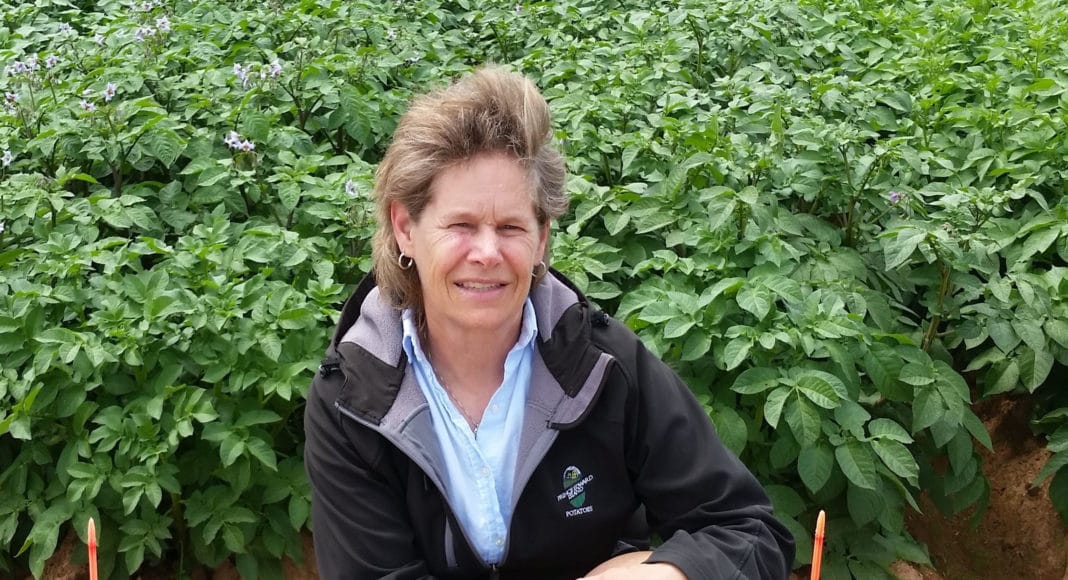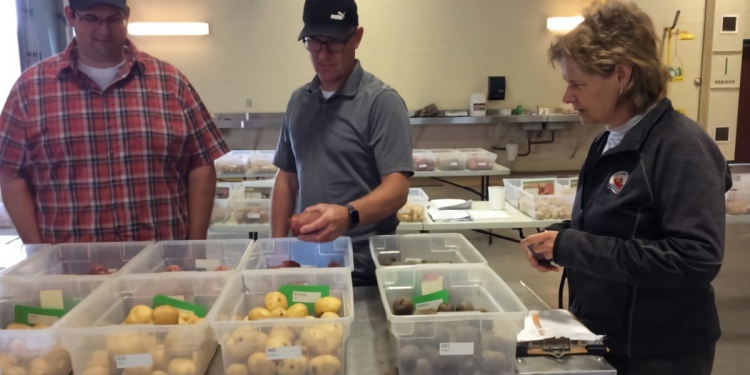Over her years working in the P.E.I. potato industry, Mary Kay Sonier has become everyone’s go-to person.
More than three decades ago, Mary Kay Sonier became the seed coordinator for the Prince Edward Island (P.E.I.) Potato Board. She had been working at the University of Guelph in southern Ontario as a potato breeding technician when the opportunity to move to the Island popped up.

“When I started working in potato breeding, it was sort of in a research role. And I was more interested in working in the industry, like working with growers in a more extension and production type position. And there was an opportunity here, so I moved,” Sonier explains in a phone interview.
Since Sonier arrived on the Island she has made herself known across the potato industry with her ever-expanding job description. When she first started, her position was focused on working with seed growers. Over the years her job has grown to include running the Elite Seed Potato Farm at Fox Island, working on national committees, organizing seed marketing activities, writing and publishing the Prince Edward Island Potato News, the P.E.I. Potato Board’s industry news publication for growers, and coordinating variety trials.
“She is amazing. She’s a sort of person that’s very organized and very professional. She has a reputation of being very knowledgeable. And she’s somebody that many other people go to or consult with on matters, especially to do with seed. And I do with a whole range of things in our industry,” Greg Donald, general manager of the P.E.I. Potato Board, says in a phone interview.
Working Through a Changing Industry
Over the years, Sonier has witnessed the potato seed industry change and weather through many storms. She was involved with the Canadian Food Inspection Agency’s last seed regulatory modernization and is taking part in the current process. She has also helped the P.E.I. potato industry through disease scares such as potato virus Y, potato leaf roll virus and the potato wart discovery last fall.
Potato wart is a regulated quarantine pest in Canada, the post notes. It reduces the yield of potatoes and makes infected potatoes unmarketable.
“The (seed) industry has evolved. Fox Island was once the sole source of early generation seed on the Island, but tissue culture technology became more accessible and there are now several well-established early generation producers, including Fox Island, all filling various market segments,” says Sonier, describing how the P.E.I. seed industry transformed over the years.
While Sonier’s job may include many different facets, her favourite part is still working with growers and assisting them through the seed industry’s evolution. Seed production is a long-haul investment where growers have to look five years down the road when making planting decisions.
“Another real challenge, especially when you’re growing seed, is that you have to speculate five years down the road, what’s going to be in demand. So, that’s been a really interesting part — seeing the change in varieties and seeing them getting introduced and adopted by the grower,” she says.
In recent years, Sonier’s job has begun to include working with and supervising summer students and interns. She also now makes presentation to school groups to educate them about the seed industry.
“Mary Kay’s always looking for, whether it’s for the growers or for our farm, she’s always looking for new ways of doing things, open to new ideas, and experimenting and trying new things,” Donald adds.








